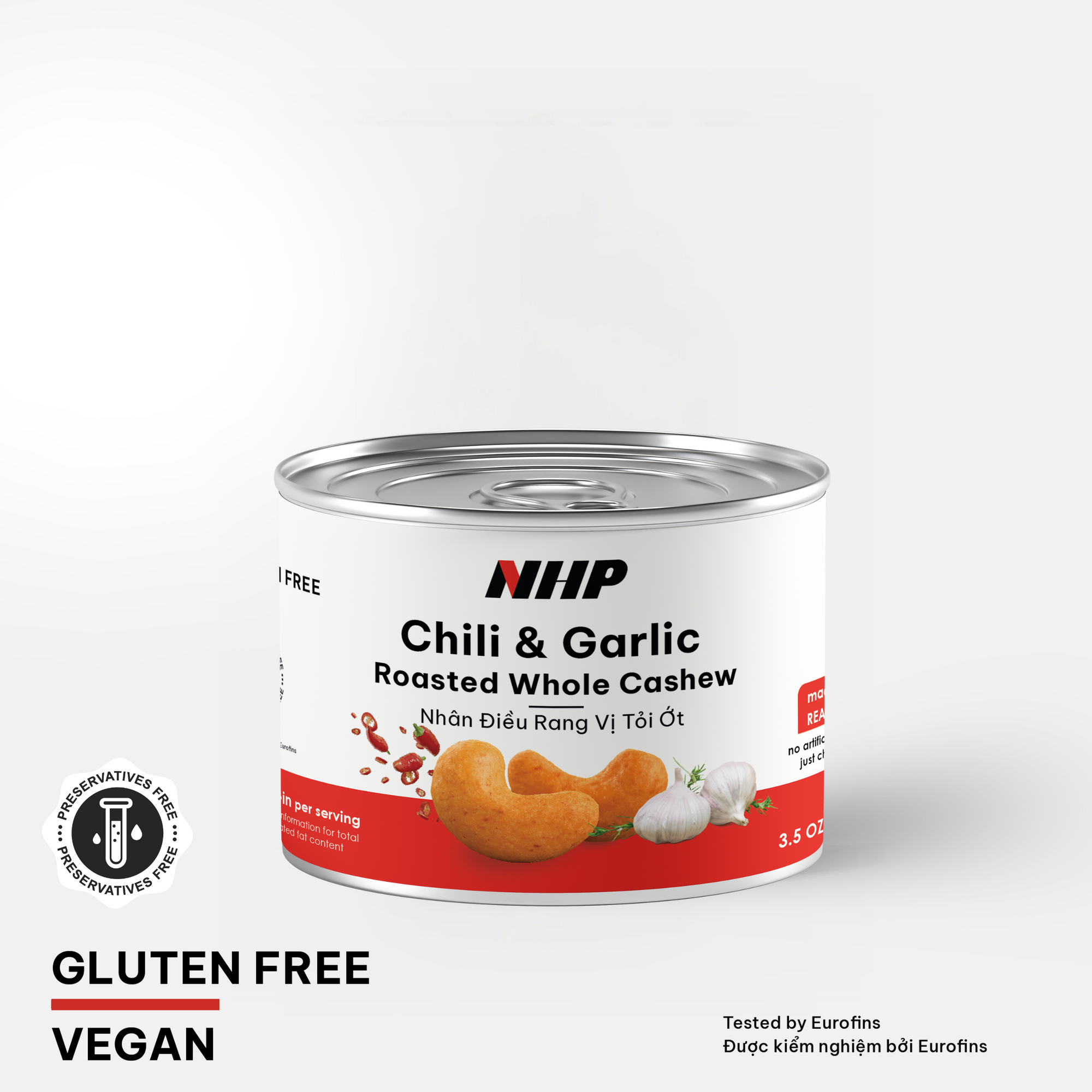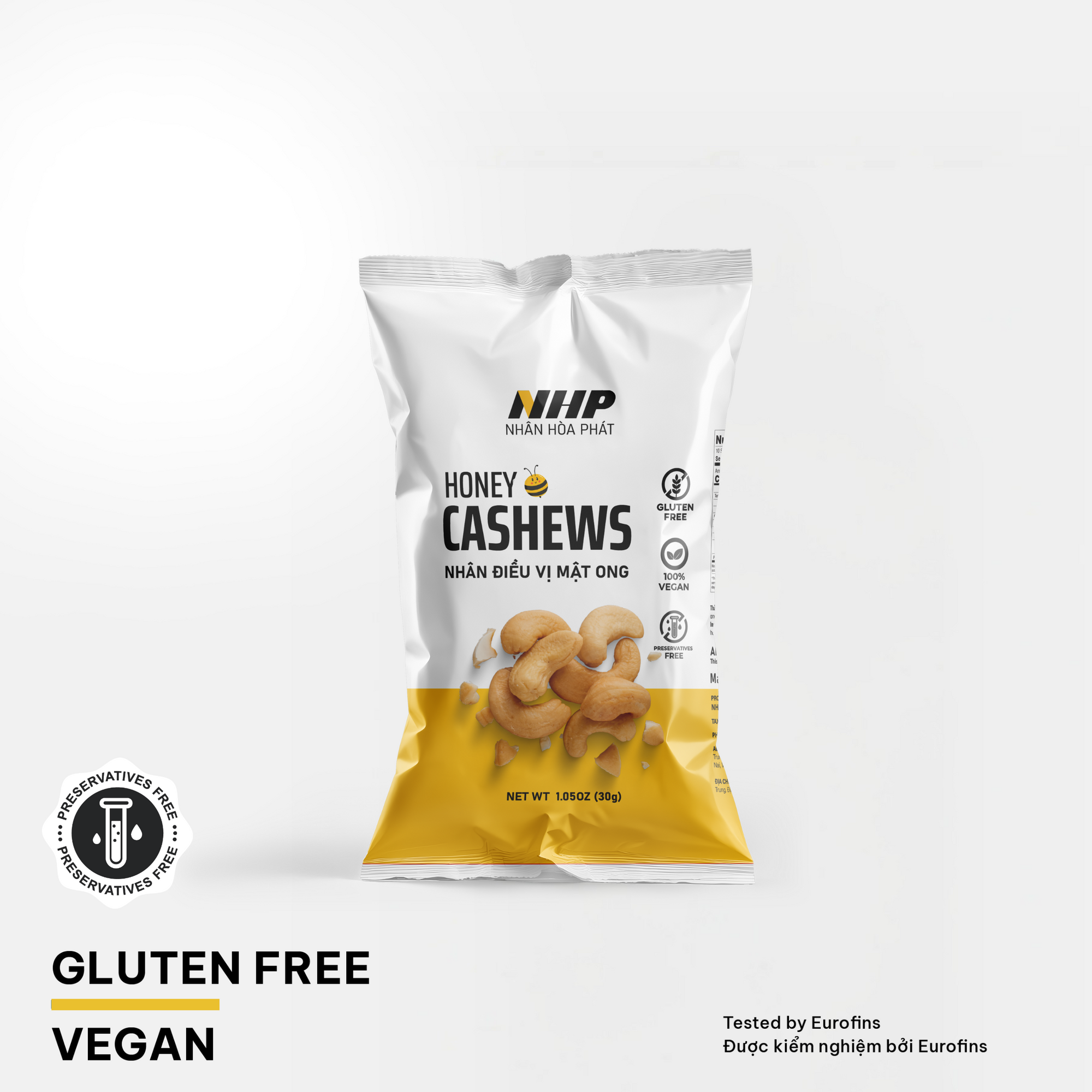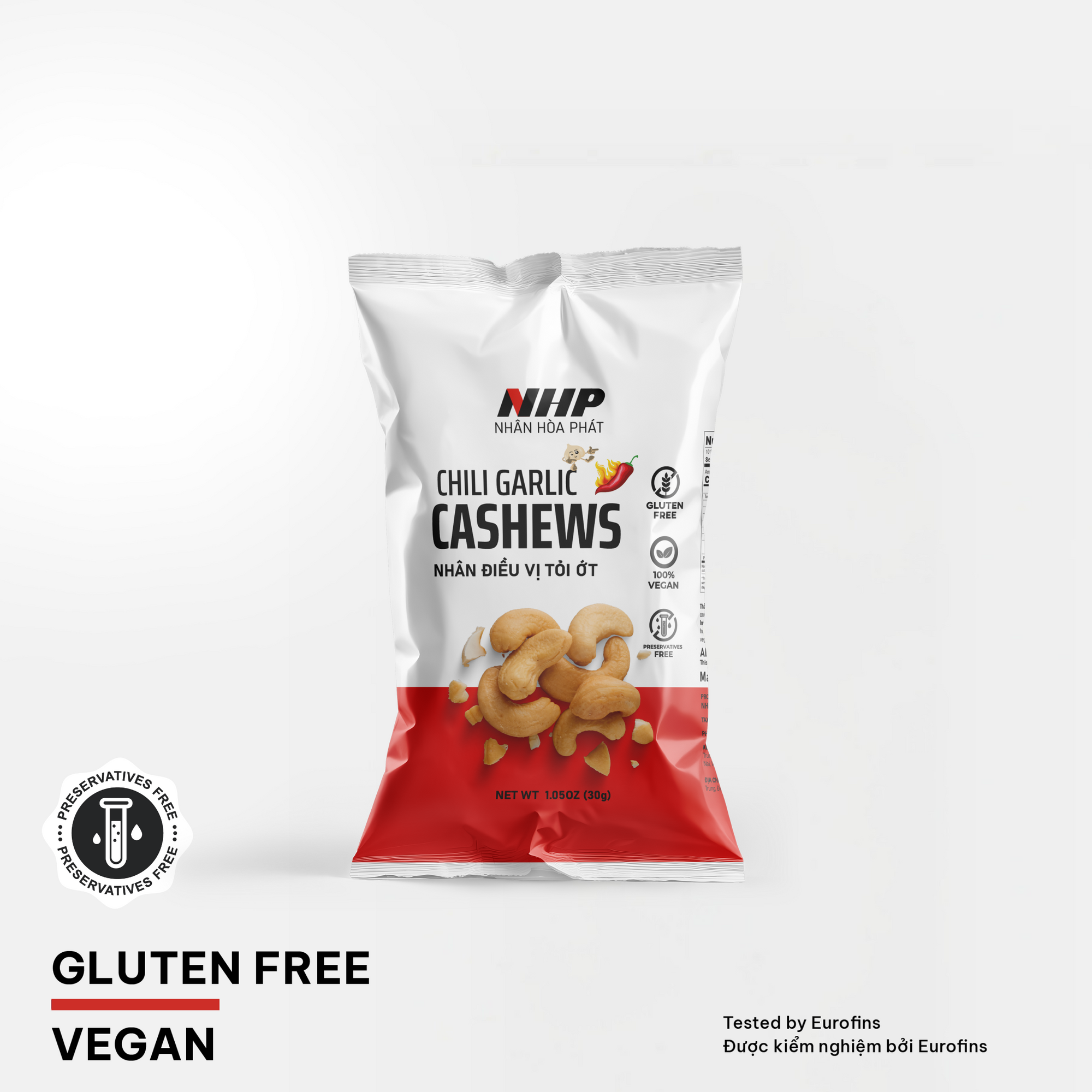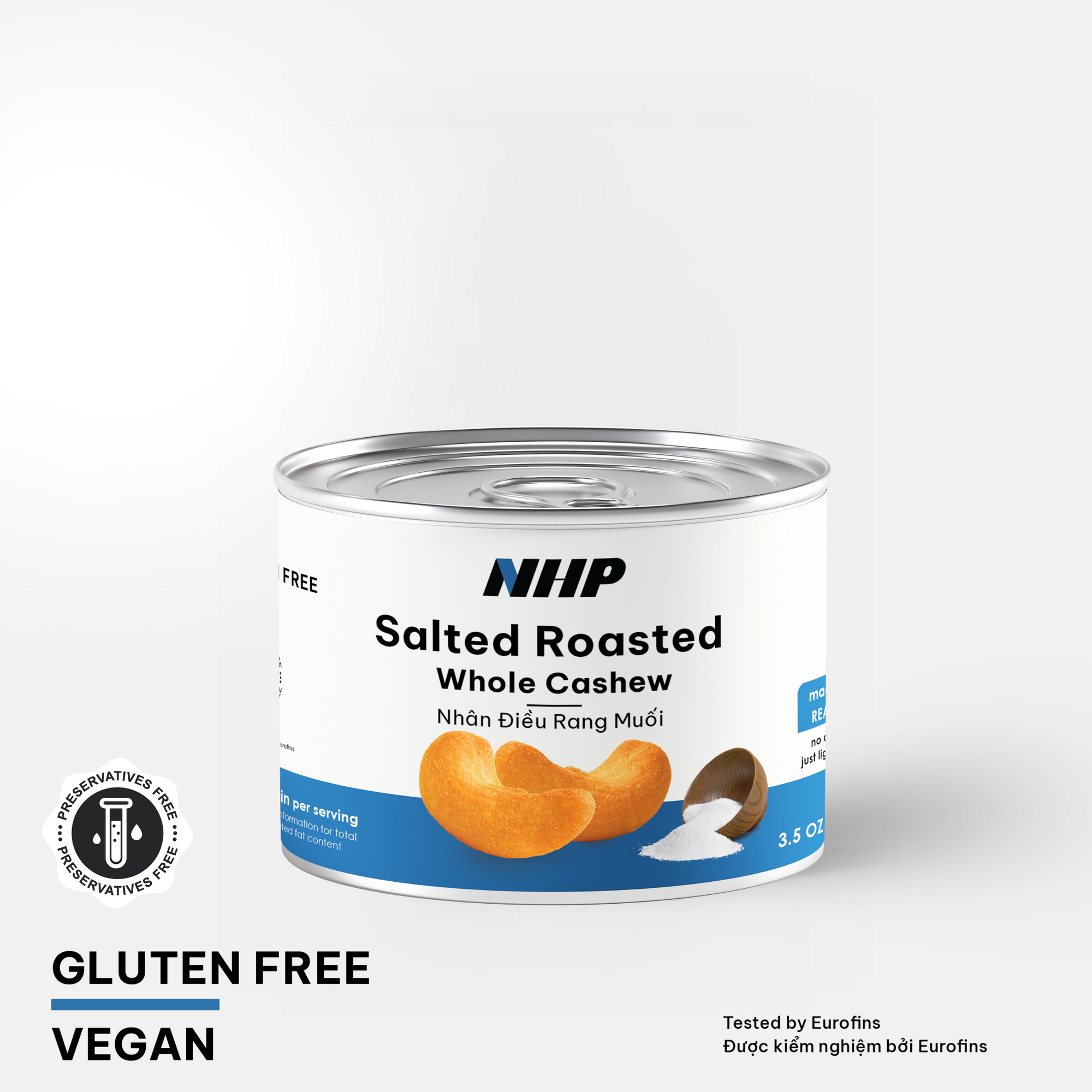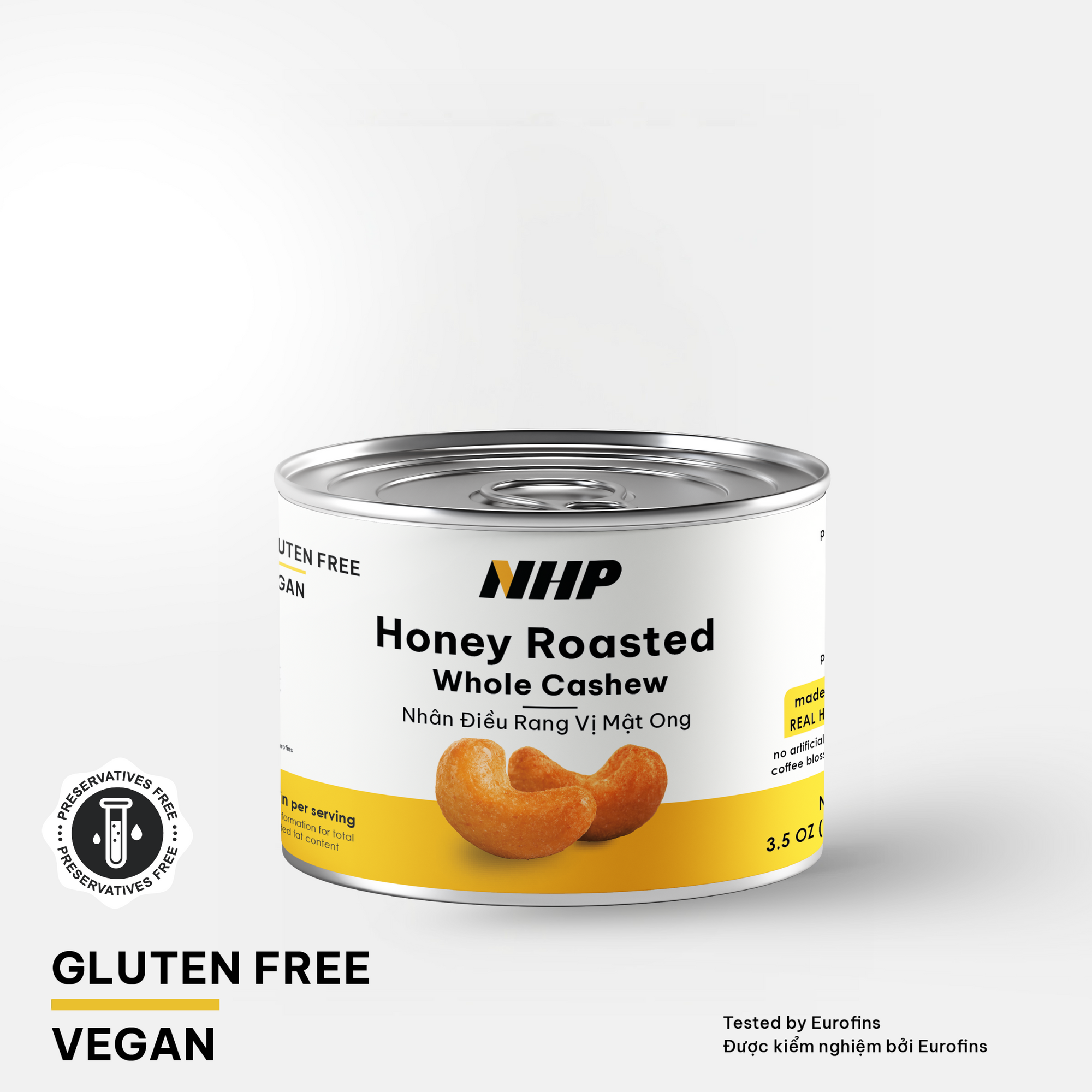Why classify cashew nuts?
Cashew nuts are among Vietnam’s most valuable agricultural exports, loved worldwide for their rich flavor, creamy texture, and outstanding nutrition.
But not all cashews are the same. To meet the strict demands of international markets such as the US, EU, Japan, and the Middle East, cashew kernels must be carefully classified according to recognized standards: AFI (Association of Food Industries – USA) and TCVN 4850:2010 (Vietnamese Standard).

Classification helps:
- Determine fair trade value (whole kernels vs. pieces differ greatly in price).
- Ensure export compliance with global quality standards.
- Guide consumers and businesses in choosing the right type of cashew for snacking, gifting, or food processing.
At NHP Cashews – Quality First, Trust Always, we strictly follow these standards to deliver premium, safe, and internationally certified cashews.
1. Classification by Shape
| Code | English Name | Description | Notes |
|---|---|---|---|
| W | Wholes | Whole kernels, intact or slightly broken (≤1/8 of size). | WW (Wholes White): white whole kernels. |
| B | Butts | Kernels broken crosswise, cotyledons still attached. | – |
| S | Splits | Kernels split lengthwise into two halves. | – |
| P | Pieces | Broken kernel pieces of various sizes. | – |
| LWP | Large White Pieces | Large white pieces, 8.0 mm sieve pass, retained on 4.75 mm. | – |
| SWP | Small White Pieces | Small white pieces, 4.75 mm sieve pass, retained on 2.8 mm. | – |
| BB | Baby Bits | Tiny broken bits, not passing through 1.7 mm sieve. | – |
| WS | Splits | Kernels broken into halves. | – |
| DP | Dessert Pieces | Small dessert-grade pieces. | – |
👉 Trade insight: Whole kernels are most valuable for retail and gifting, while pieces are widely used in snack, bakery, granola, and food processing industries.
2. Classification by Size
(Size classification applies only to whole kernels, based on the number of kernels per pound ~454g).
| Code | Kernels per Pound | Trade Name | Description |
|---|---|---|---|
| W180 | 170 – 180 | King of Cashew | Largest, rarest, highest value. |
| W210 | 200 – 210 | Jumbo | Large kernels, premium grade. |
| W240 | 220 – 240 | Large | Large-medium size. |
| W320 | 300 – 320 | Medium | Most popular (~45% of exports). Attractive, bright kernels. |
| W450 | 400 – 450 | Small/Medium | Smaller than W320, more affordable. |
| W500 | 450 – 500 | Small | Smallest whole kernels. |
👉 Consumer guide:
- W320: the most preferred for snacking – size, price, and quality are well-balanced.
- W180, W210: premium gifting and luxury markets.
- W450, W500: widely used for industrial food processing.
3. Classification by Color & Quality
| Code | Name | Description | AFI Standard |
|---|---|---|---|
| W | White Whole | White, ivory, pale yellow, or light ash-grey. | First Quality Fancy |
| SW | Scorched Whole | Slightly scorched, yellowish or light brown. | Second Quality Scorched |
| SSW | Second Scorched Whole | Darker yellow to brown, slightly shriveled. | Third Quality Special Scorched |
| LBW | Light Blemish Whole | Slight blemishes, ≤40% surface affected. | Lightly Blemished Wholes |
| DW/BW/DBW | Dessert / Blemish / Dark Blemish | Darker kernels with amber or brown spots, ≤60% surface affected. | Dessert Blemished Wholes |
👉 Usage: White Whole grades are destined for premium export markets, while Scorched and Blemished grades are commonly used in snack and confectionery industries.
4. Technical & Food Safety Requirements
| Criteria | Requirement |
|---|---|
| Moisture Content | ≤ 5% (TCVN) or 3–5% (AFI). |
| Pest & Contamination | Free from insects, mold, visible impurities. |
| Flavor | Natural, not rancid, no off-flavor. |
| Cashew Nut Shell Liquid (CNSL) | Must not be contaminated with toxic CNSL. |
| Adhering Testa | ≤ 1.5% by weight, ≤ 2 mm in total. |
| Heavy Metals & Toxins | Within international safety limits (aflatoxin, mycotoxin, pesticide residue). |
| Packaging | Packed in tins or PE bags, vacuum-sealed or flushed with N₂/CO₂ for preservation. |
👉 Inspections are conducted under ISO/IEC 17020:2012 to guarantee compliance before shipment.
Conclusion
Cashew classification is more than a technical step – it is the foundation of pricing, safety, and global trade acceptance.
- For consumers: it helps choose the right cashews for snacking, gifting, or cooking.
- For businesses: it ensures compliance with strict import standards and builds trust with international buyers.
At NHP Cashews, every cashew kernel reflects our commitment: no preservatives, no artificial colors, vegan-certified, gluten-free, ISO certified – bringing the pride of Vietnamese cashews to the world.
👉 Contact NHP Cashews:
📞 +84 978 091 719
🌐 www.nhpcashews.com
